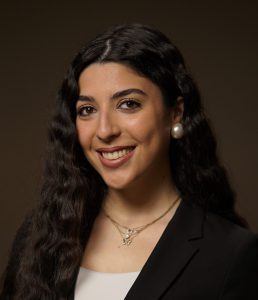
Venezuela, once one of the richest nations in Latin America (Harvard Kennedy School) is presently facing a humanitarian crisis. Access to food, medicine, and clean water has become impossible for millions of Venezuelans due to years of economic incompetence, conflict over politics, and international sanctions. As the situation deteriorates, the fight for survival intensifies, with numerous families abandoning the nation or resorting to desperate measures in desire of relief.
According to Human Rights Watch, many people in the country are suffering from a serious lack of medicine (HRW 1). Public hospitals sometimes lack medical equipment and staff, so patients must carry their own supplies. The failure of public healthcare has forced many people to rely on private facilities, resulting in severe financial inequality in the country, as not everyone can pay the cost (Ballard Brief). Caracas Chronicles revealed that by the late 1950s, public healthcare facilities in Venezuela began to decline, leading to an expansion in the private sector because they offer higher-quality care. They indicated that “At least 80% of medical supplies in a private hospital are imported, so without subsidized dollars you cannot have reasonable prices” (Caracas Chronicles).
As stated in United Nations High Commissioner for Refugees, as a result of these circumstances, many Venezuelans have been forced to leave their homes in the pursuit of greater opportunities (UNHCR 1). The ongoing humanitarian emergency has led millions of people to migrate in search of basic needs, safety, and better standards of living. An article from the Guardian affirmed that, “Most have been forced to leave their families behind to seek work due to the country’s economic collapse, caused by mismanagement and corruption and later compounded by US sanctions” (The Guardian).
As things become worse, the impact on peoples’ everyday lives intensifies and foreign organizations (Amnesty International, International Organization for Migration (IOM), International Rescue Committee (IRC), United Nations High Commissioner for Refugees (UNHCR), etc) express concern about the suffering. According to the United States Agency for International Development (USAID), “An estimated 7.6 million people are in need of humanitarian assistance in Venezuela, while more than 7.7 million Venezuelans were living outside of the country as of November 2023, including 6.8 million Venezuelans who have fled to neighboring countries in the Caribbean and Central and South America,” (USAID).
In order to address the scarcity of food, medication, and other essentials, the Venezuelan government has introduced several initiatives such as increasing local production of food, medical supplies, and medications (HRW 2). However, Human Rights Watch states, “, they have not significantly alleviated the severity of Venezuela’s humanitarian crisis” and “… the government’s own policy initiatives and its limited efforts to secure international assistance have fallen far short of what is needed to alleviate the shortages” (HRW 2). This reflects doubt on the effectiveness of these initiatives as well as the government’s broader strategy for resolving the current issue, particularly in regard to the government’s efforts to lower the influence of private companies. The Council on Foreign Relations reported the Chavez – Maduro Government “… harassed the press and closed independent outlets and nationalized hundreds of private businesses and foreign-owned assets such as oil projects run by ExxonMobil and ConocoPhillips” (CFR).
During a recent interview with an anonymous source about Venezuela’s political situation, the source declared that “The humanitarian crisis, as we know, is a scandalous situation at the national level. It is not just about the high levels of malnutrition, food problems, and failures in the healthcare system; there has also been an erratic response over the last twenty-five years” (Anonymous source). This underscores the necessity of finding effective answers to the challenges that impact the country and its people.
The source additionally stated that “We need to produce our own food.” They continued, “this is why we can say that Venezuela is a sick nation; sick because there is no healthcare system and sick because there is inadequate nutrition” (Anonymous source). According to World Vision, In Venezuela, the number of people facing severe food shortages is expected to increase from 2 million in early 2024 to 3.5 million by mid-year (World Vision).
References
Amnesty International: https://www.amnesty.org/en/location/americas/south-america/venezuela/report-venezuela/
Ballard Brief: https://ballardbrief.byu.edu/issue-briefs/public-healthcare-crisis-in-venezuela https://ballardbrief.byu.edu/issue-briefs/public-healthcare-crisis-in-venezuela
European Commission: https://civil-protection-humanitarian-aid.ec.europa.eu/where/latin-america-and-caribbean/venezuela_en#:~:text=Food%20remains%20scarce%20for%2041.9,affect%20the%20most%20vulnerable%20population.
Caracas Chronicles: https://www.caracaschronicles.com/2021/03/03/why-are-private-hospitals-so-expensive-in-venezuela/
CFR: https://www.cfr.org/backgrounder/venezuela-crisis
HRW 1: https://www.hrw.org/world-report/2024/country-chapters/venezuela
IOM: https://www.iom.int/venezuelan-refugee-and-migrant-crisis
Interview with an authoritative source, 30 September 2024 (Interview translated from Spanish to English).
IRC: https://www.rescue.org/country/venezuela
The Guardian: https://www.theguardian.com/global-development/article/2024/jul/25/venezuelan-exiles-election-maduro
UNHCR 1: https://www.unhcr.org/emergencies/venezuela-situation
USAID: https://www.usaid.gov/humanitarian-assistance/venezuela-regional
World Vision: https://www.worldvision.org/disaster-relief-news-stories/venezuela-crisis-facts